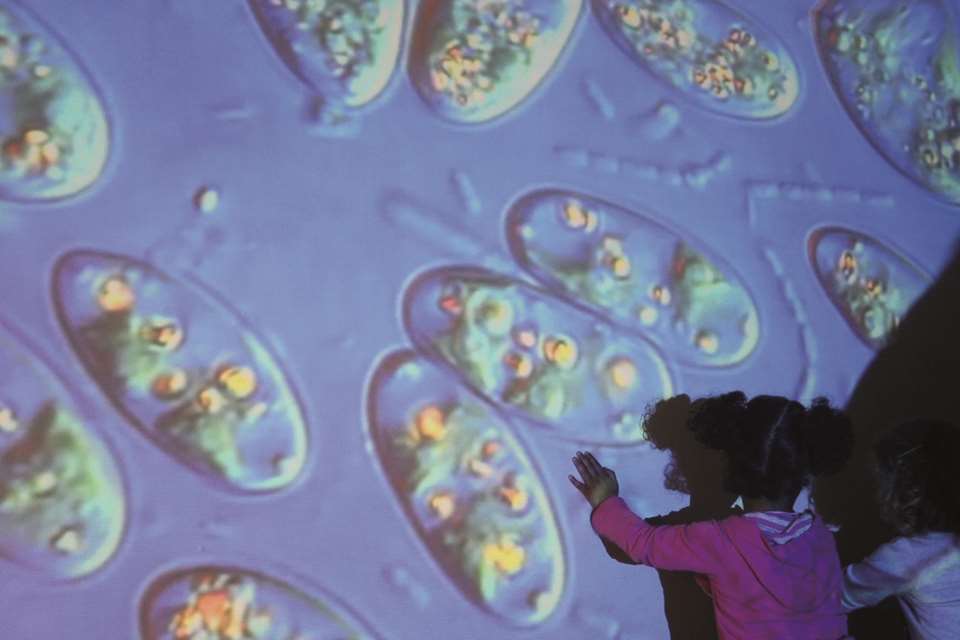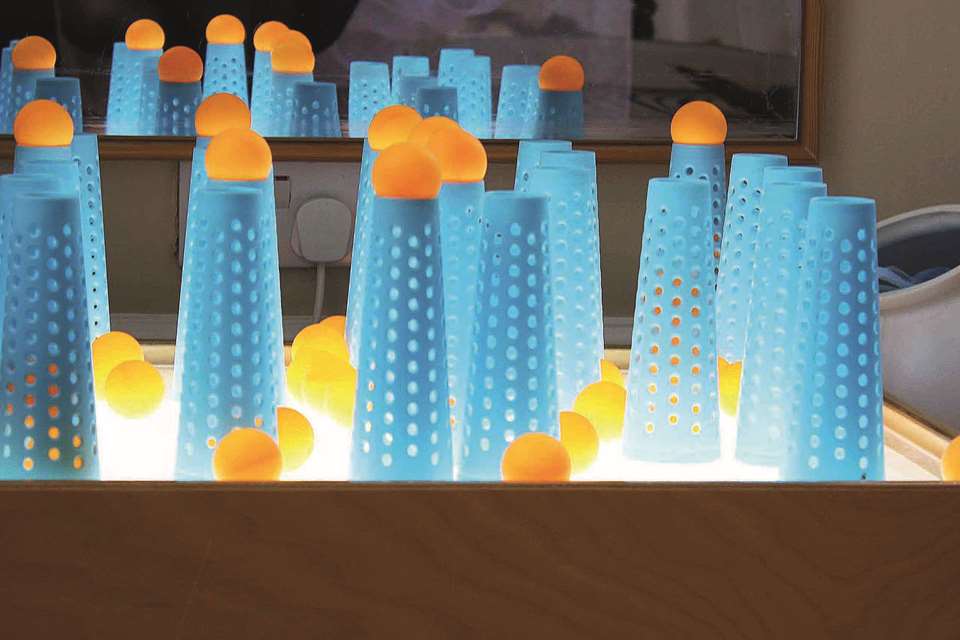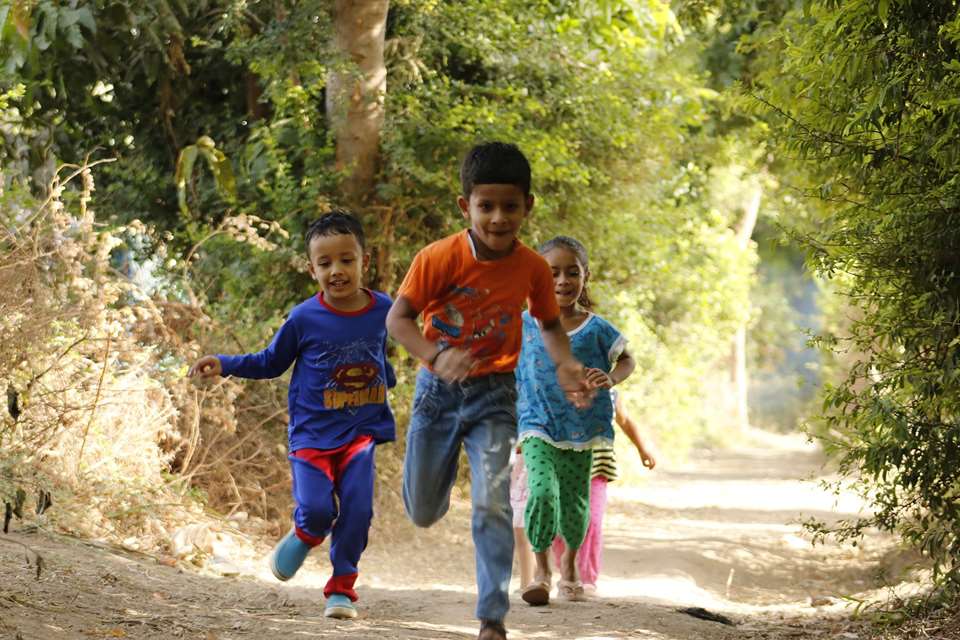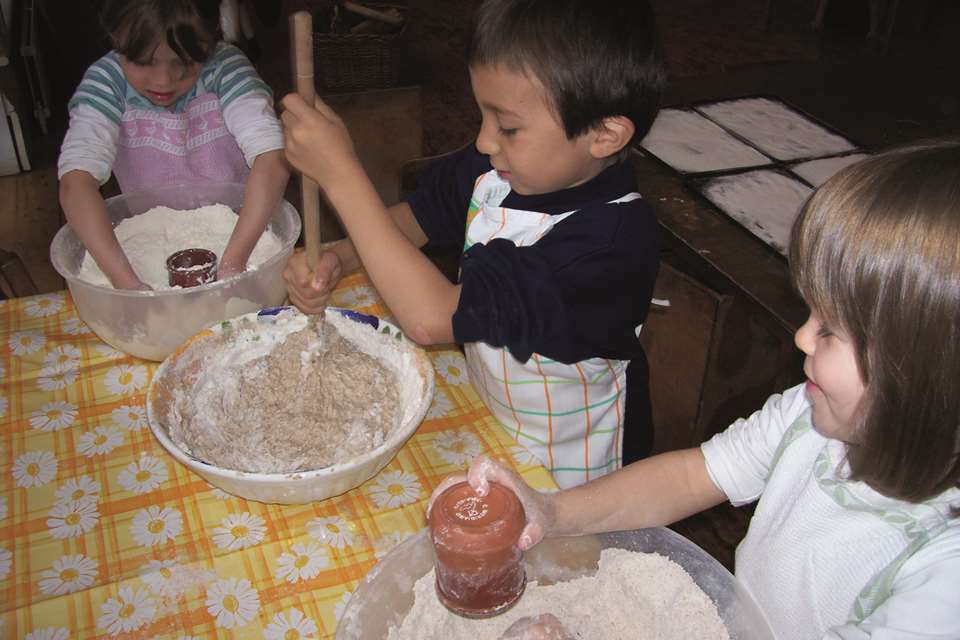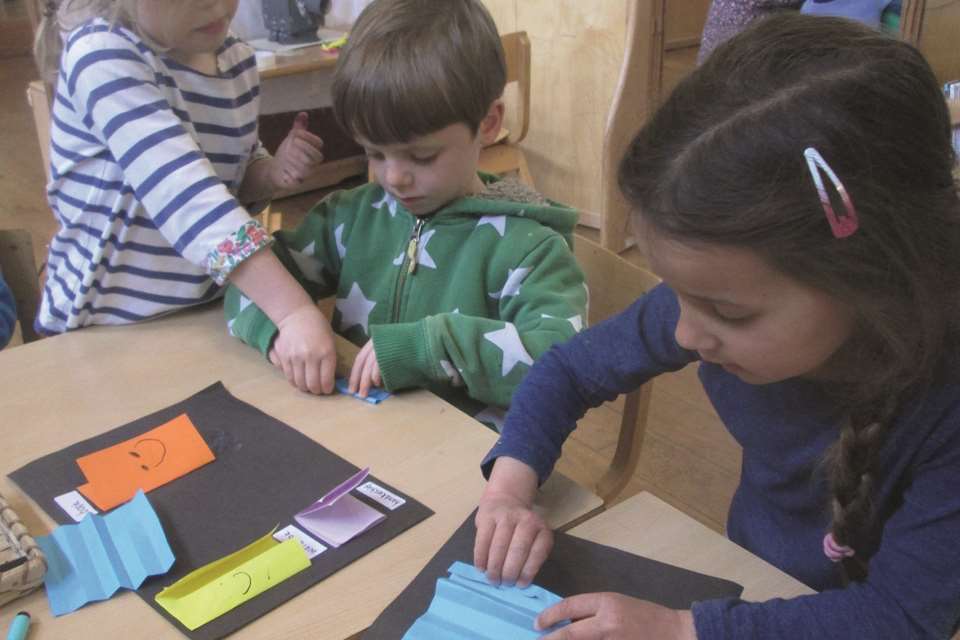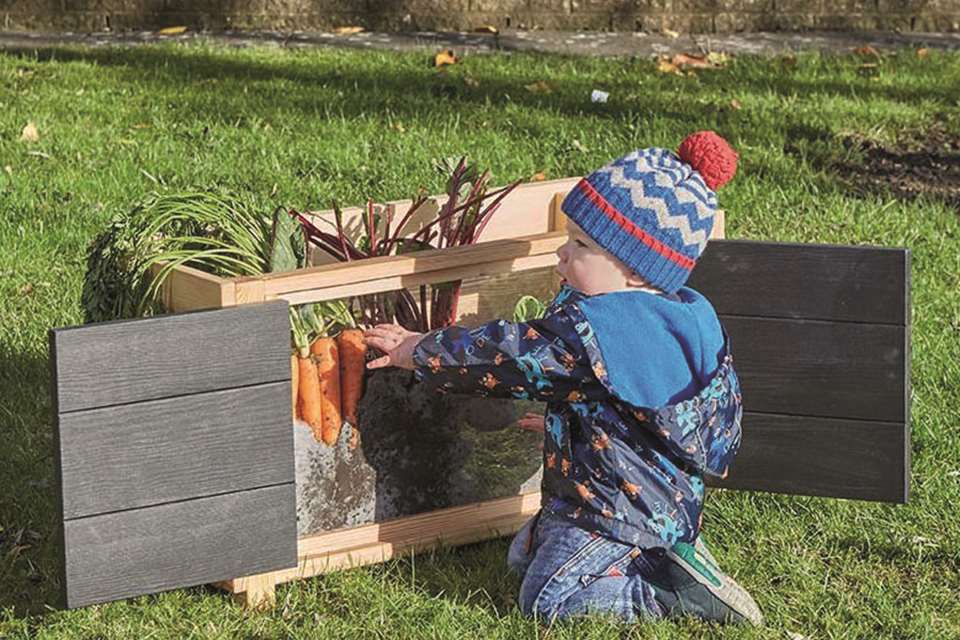Essential Resources: Pioneers & Influencers - Hands on
Nicole Weinstein
Tuesday, May 31, 2022
Friedrich Froebel’s ideas are just as pertinent today as they were 180 years ago, Nicole Weinstein discovers, as she looks at how his Gifts and Occupations have been adapted for the 21st century
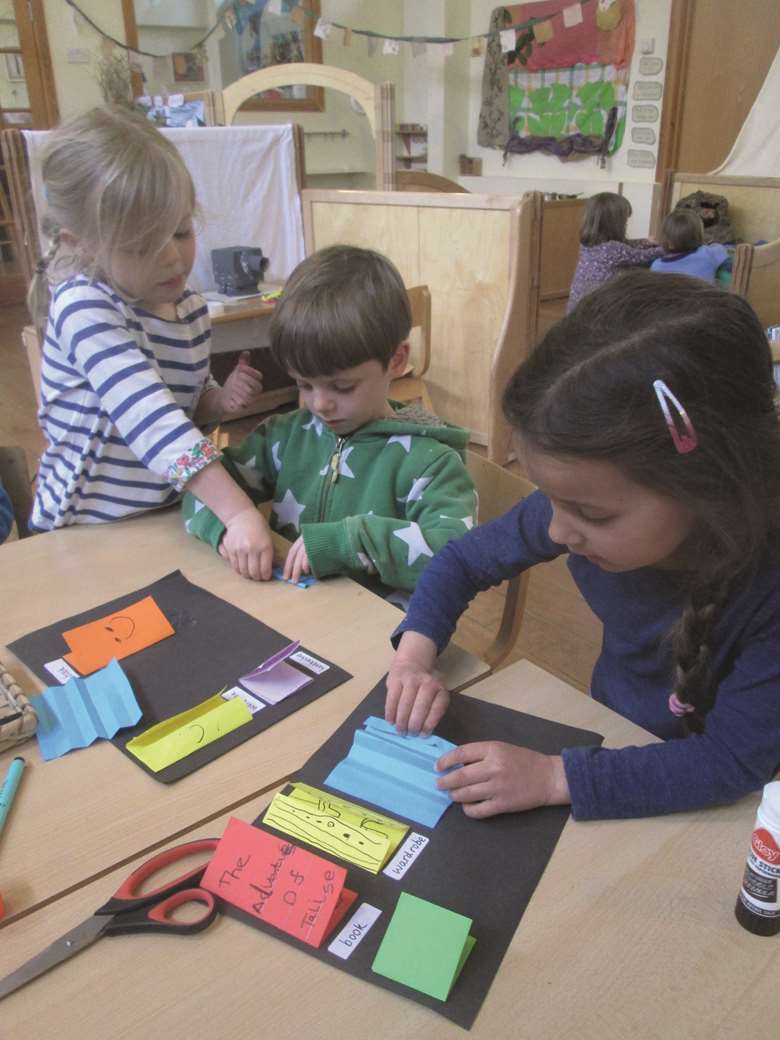
Friedrich Froebel came up with the name ‘kindergarten’ – the children’s garden – while walking over the mountains in Keilhau, Germany, where he grew up. His ideas, which were revolutionary at the time, were based on the premise that children learn best through play and first-hand experiences. Today, his principles are so embedded in early years practice and provision that he is often not recognised as a pioneer in his own right.
He invented objects and activities for children to play with, known as Gifts and Occupations, which are today associated with block play; playing with natural materials such as sand, water and clay; planting and harvesting fruit and vegetables; cooking from scratch; and using real tools.
But his practice lives on and there has recently been a surge of interest from across the globe, thanks to the Froebelian Trust’s awareness campaign (see Further information).
FRIEDRICH FROEBEL (1782-1852)
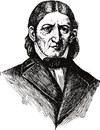 Froebel grew up surrounded by mountains and the beautiful forests of Thuringia, Germany, which helped inspire his love of nature. After his mother died during his early childhood, Froebel lived with his father, a Lutheran pastor, and his stepmother, who reportedly was cruel to him and once locked him in the cellar and forgot about him until the following morning.
Froebel grew up surrounded by mountains and the beautiful forests of Thuringia, Germany, which helped inspire his love of nature. After his mother died during his early childhood, Froebel lived with his father, a Lutheran pastor, and his stepmother, who reportedly was cruel to him and once locked him in the cellar and forgot about him until the following morning.
His work was influenced by the educator Johann Heinrich Pestalozzi after he taught at his school from 1808 to 1810. Froebel had an interest in minerology and crystals and he got a job sorting and classifying the University of Berlin’s crystal collection. This work went on to inspire his Gifts and Occupations, which he viewed as a window to the child’s inner self leading to a deepening knowledge of the world.
In 1840, Froebel opened his first kindergarten at Blankenburg, Germany. Until this time there had been no educational system for children under seven years of age. The Froebel School at Keilhau is still in operation today, along with other kindergartens and Froebelian schools in the area.
Experience and understanding of nature along with the idea of unity and interconnectedness are central to Froebel’s ideas. At his kindergarten, each child had their own vegetable plot where they could dig, tend to plants and harvest. Understanding the need to feed, water, provide shelter and care for living things connects children to their own basic needs, Froebel believed.
Today, this has links to issues around sustainability and children’s disconnection from the natural world.
Gifts and Occupations
Froebel believed that play is the highest level of child development and that it is ‘never trivial; it is serious and deeply significant’.
Froebel’s Gifts and Occupations include small, crocheted balls on strings for babies and a series of increasingly complex boxed blocks in the shape of a cube, subdivided in different geometric configurations.
The Occupations include sewing, weaving, clay, paper folding, paper pricking, sticks and peas for construction, parquetry and woodwork.
By playing with these resources, children can explore forms of life through representation; forms of beauty through pattern, symmetry and harmony; and forms of knowledge through mathematical concepts.
Felicity Thomas, a certified travelling Froebelian teacher who has been teaching Froebelian practice for 47 years, says, ‘Although the traditional Gifts can be bought, I wouldn’t advocate using them in settings. In its place, I would always encourage settings to have the Community Playthings blocks for use alongside the key Occupations.
‘I would also encourage practitioners to do activities that resonate with the cultural world, such as clay and weaving, alongside other occupations which are more real and meaningful now, like woodwork or even technology.’
RESOURCES
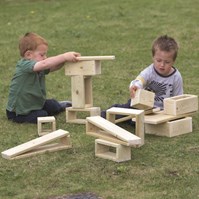
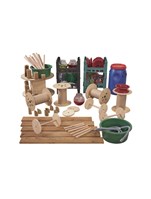
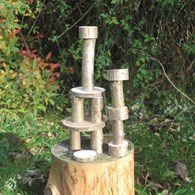
Block play is central to the Froebelian ethos. Froebel’s original blocks were quite small, but the blocks that most settings use now are based on the set of unit blocks developed by Caroline Pratt in 1913 in the USA (see Further information). They are directly related to the shape of Froebel’s blocks in Gift 4 (rectangular prisms), in a ratio of 1:2:4.
- Try Community Playthings’ Pre-School Unit Block Set of 149 blocks, £445; Mini unit blocks, £86; the Pre-School Set Hollow Blocks, £1,330; or for outdoor use, try the Outlast Nursery Classic Set, £2,124.
- Cosy’s Imagineering Class Set, £779, Unit Blocks in The Box, £109.99 and Deconstructed Role Play Set, £215, are other great options. Go green and use your old plastic milk bottles to grow plants in with Cosy’s Milk Bottle Holder Stand, £61.99; get up-close with nature with its Worm Farm, £76.99, or experiment with clay or paint mixing in its Dough Making Potion Parlour, £99.99.
- Try TTS’s Giant Wooden Hollow Blocks, £189.99, its Standard Wooden Unit Blocks, £69.99, or its Earth Loose Parts Set, £219.99. For clay activities, try the Red Terracotta Earthenware Clay, £6.99, on mess-free Hessian Sheets, £12.99, which can also be used for weaving activities. The Wheeley Weaving Panel, £449.49, is another option.
- Muddy Faces’ Nature Blocks – 70 pieces in a Wooden Crate, £175.19, made with UK-grown wood, are cut in units of 10cm, 5cm and 2cm.
- The Complete Set of Gifts 1-6, £175.80, made by SINA in Germany, is now available from the Froebel Network in the UK.
CASE STUDY: Annan School, The Froebel School
Annan School, based in East Sussex, is a family-run independent primary school with a kindergarten for two- to four-year-olds. The school’s pedagogy is based on Froebel’s principles, and nature and the outdoors are at the forefront of the curriculum. Children enjoy gardening, tree-climbing, loose-parts play, water pumps, sand pits and wooded areas with mud kitchens and sound gardens.
Although the children in the kindergarten have access to traditional Gifts – six sets of cubes, spheres and cylinders – which they use for open-ended play and training, principal Debby Hunter insists that the Froebelian ethos does not rely on having any particular materials.
‘It’s a set of principles which helps practitioners understand how children learn and are best supported in their settings, and there is no need for settings to have the Gifts,’ she says.
Debby set up the school with her husband, Mark, in 2001. She says, ‘We mainly use Gifts three and four because five and six are smaller and harder to return to the boxes. The Gifts are helpful to think about shape and Froebel’s concept of unity. We take the whole cube out of the box, play with it, make different things and then return to the whole. This is a representation of how Froebel thought about how children learn – i.e., we draw out from the child, expand their thinking and understanding and then return to the original state but with more understanding. Children are not empty vessels to be filled with knowledge – we build on their existing knowledge, starting where the learner is at and recognising individual differences.
‘Using the Gifts allows children to play with something of beauty which is open-ended and allows them to make representations of their everyday life, e.g., building a house or bed, and also to make patterns with the blocks which represent beauty around them and give them opportunities to see symmetry and pattern, whether on boards with grids or on a plain background. The Gifts three and four also can be used to talk about the language of maths: counting, grouping, halves and wholes. They cover knowledge, beauty and life: Froebel’s three forms of learning.
‘The Gifts are generally made available on a table either on boards or sometimes on a light-table. The children are given free access to them, but there is no real “teaching” or right or wrong way to use them. Children can use them however they want.
‘We also use the later Gifts seven to ten, which are flat pattern-making shapes, circles, half circles, points and sticks. These are also great for pattern-making and exploration of line and point.
‘Whereas Gifts are taken out and used and return to the whole, original form, Occupations manipulate materials and cannot return to their original form.’
Occupations on offer include woodwork, gardening, clay, sewing/weaving and paper-folding.
FURTHER INFORMATION
- For Froebel courses, visit https://bit.ly/36N5JWm or contact victoria@froebeltrust.org.uk
- Froebelian Trust awareness campaign, https://bit.ly/3Kh8m0n
- Block play, https://bit.ly/3rNT4Kb
- https://annanschool.co.uk


